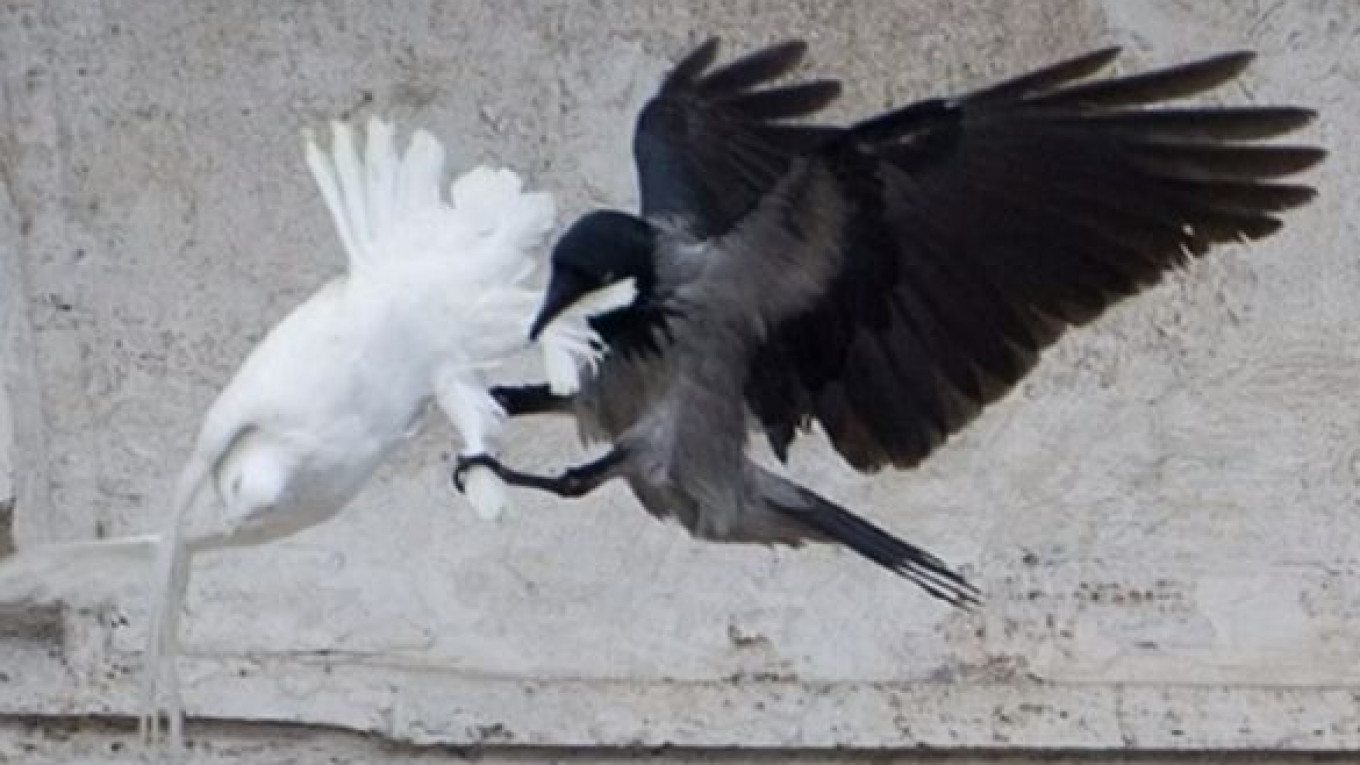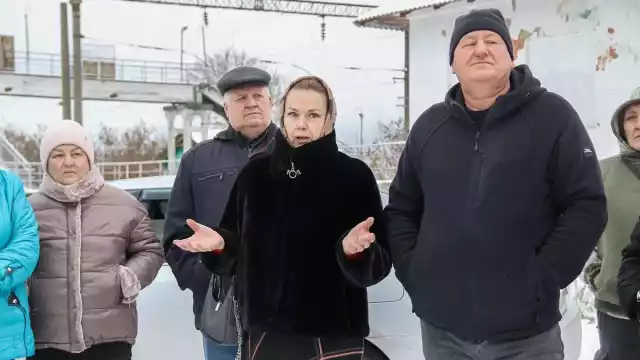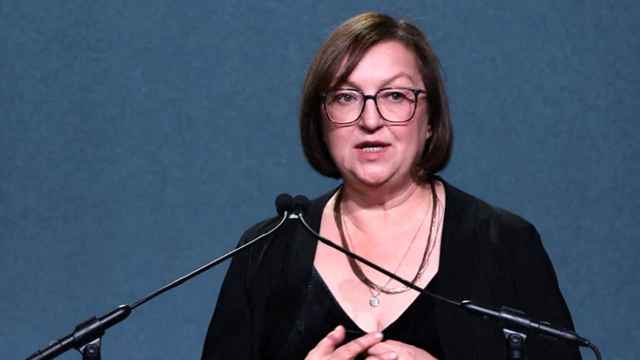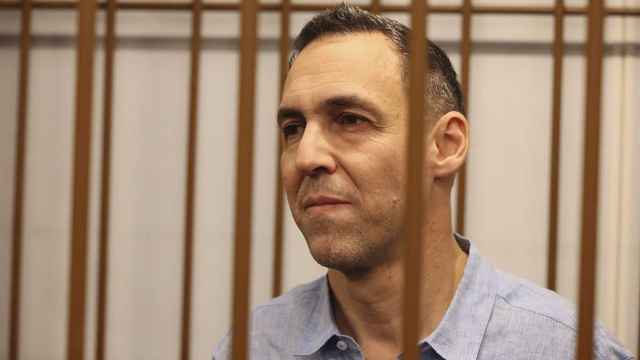Two doves — released by the Pope in a call for peace in Ukraine — have been attacked by two larger birds, in what many interpreted as an ominous sign for the country.
The doves were set free from a balcony overlooking St. Peter's Square on Sunday, after the Pope had led morning prayers preaching "the spirit of peace and the search for common good to prevail in the hearts of all," and calling for an end to the violence in Ukraine.
However, the symbolic gesture soon backfired as the peace birds were set upon by a seagull and a crow, which repeatedly pecked and grabbed at the smaller birds as thousands of people watched.
Social media users have been speculating what the unfortunate incident may mean for Ukraine, with many people drawing parallels between the larger birds and the Ukrainian special police, who go by the name "Berkut," or "Eagle."
"It is symbolic. The dove of a free Ukraine in the clutches of the 'Berkut,' one user said in a comment on radio station Ekho Moskvy's website.
"Putin and Yanukovych?" another user said, referring to the two preying birds.
In another comment, one user drew a parallel between the attack and Russian General Prosecutor Yury Chaika's last name, which is Russian for "seagull."
"The seagull — as the Prosecutor General's last name — is the embodiment of law in Russia and Ukraine today," he said in a comment on Ekho Moskvy.
Last week, three people were killed in clashes between police and protesters in Kiev, as anti-government protests turned increasingly violent in the Ukrainian capital.
The Pope said he was close in his prayers to Ukraine, "in particular to those who have lost their lives, and their families," and reiterated the need for dialogue between "the institutions and civil society."
A Message from The Moscow Times:
Dear readers,
We are facing unprecedented challenges. Russia's Prosecutor General's Office has designated The Moscow Times as an "undesirable" organization, criminalizing our work and putting our staff at risk of prosecution. This follows our earlier unjust labeling as a "foreign agent."
These actions are direct attempts to silence independent journalism in Russia. The authorities claim our work "discredits the decisions of the Russian leadership." We see things differently: we strive to provide accurate, unbiased reporting on Russia.
We, the journalists of The Moscow Times, refuse to be silenced. But to continue our work, we need your help.
Your support, no matter how small, makes a world of difference. If you can, please support us monthly starting from just $2. It's quick to set up, and every contribution makes a significant impact.
By supporting The Moscow Times, you're defending open, independent journalism in the face of repression. Thank you for standing with us.
Remind me later.






